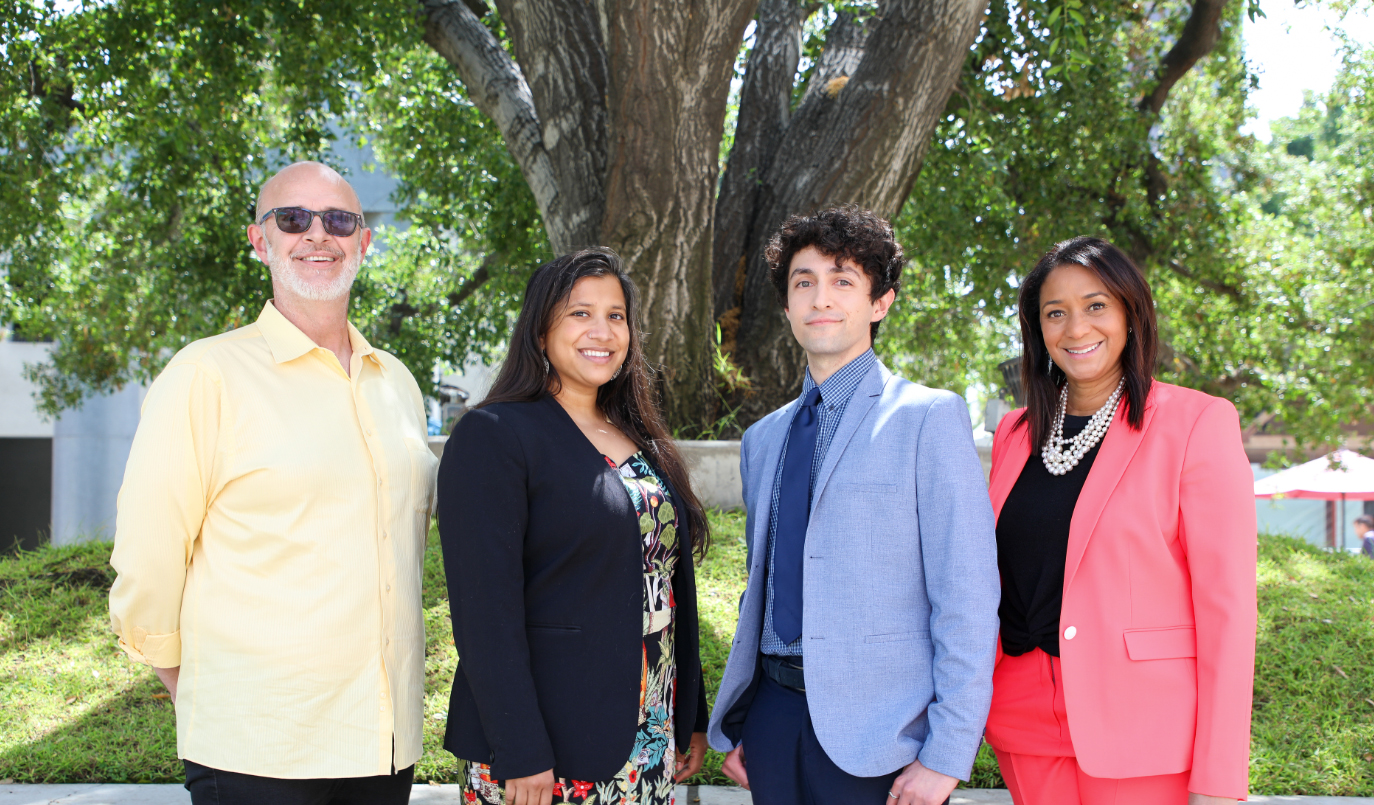
LMU Loyola Law School’s new Loyola Interdisciplinary Journal of Public Interest Law (LIJPIL) was revolutionary from the start.
Reconceptualizing the law review idea, LIJPIL features not only prose but also poetry, art, and more. Meanwhile, the subject matter it tackles is as deep and broad as the mediums it incorporates. Developed by students and faculty, LIJPIL embraces legal scholarship as an interdisciplinary platform.
LIJPIL is an annual academic journal with an interdisciplinary and narrative-based approach to public interest advocacy and education. The publication strives to disrupt traditional law school curricula and pedagogy by bringing together scholarly articles, lectures, and practitioner essays alongside poetry, art, and short creative and autoethnographic works to emphasize the power of storytelling in systemic change. Inspired by the Los Angeles Public Interest Law Journal, a 2007 independent collaboration between Southern California law schools, LIJPIL is proud to pursue topical themes in public interest law collectively chosen by its staff. The journal is committed to highlighting the stories of underrepresented communities by providing a forum for a range of legal professionals, scholars, policy makers, artists, and critical thinkers.
Even the way LIJPIL composes its editorial board is unique: A personal statement, interview, and writing sample trump first-year grades and competition-centered applications in student selection to diversify and create greater access to legal publishing, more accurately mirror public interest hiring processes, and allow individual student interest to drive membership.
“This journal aims to fundamentally challenge the way we conceptualize and engage with traditional legal scholarship and pedagogy,” said André Enriquez ‘23, editor-in-chief and co-founder of LIJPIL. “It acknowledges that poetry, art, autoethnography, and other forms of narrative advocacy have always been and will always be at the center of public interest and systems-change work, and creates new means of access to that acknowledgement for the marginalized communities we hope to better serve. More candidly, LIJPIL seeks to spur innovation by shaking the roots of what 'interdisciplinary' means in our field.”
During the 2023 Public Interest Palooza symposia panel “Queering Legal Scholarship: Storytelling and Participatory Action Research in Systems Change Advocacy,” LIJPIL teased some of the upcoming articles and creative pieces in the inaugural issue of the journal. The conversation explored how the queer community, particularly non-binary and transgender youth of color, have faced unprecedented attacks over the past decade on their access to individual freedoms, political accountability, and public resources in the form of state action dignity takings. The dialogue also highlighted the often life-or-death stories of queer refugees struggling to physically move through international borders and public spaces, as well as the community-driven creative advocacy practices international collaboratives can utilize to compressively address such issues.
The panel featured a discussion with Enriquez; Sarah Medina Camiscoli, co-executive director of the Peer Defense Project and assistant professor of Law at Rutgers Law School Newark; Paige Duggins-Clay, chief legal analyst at the Intercultural Development Research Association (IDRA); Maryam Salmanova, co-executive director and founding youth legal worker of the Peer Defense Project; and Ibthal Chamakh, vice president of the Women’s Law Initiative and outreach chair of the Minority Law Student’s Association at Cordozo Law School, all of whom are co-authors on LIJPIL’s flagship Articles piece. Anna Renée Winget, Ph.D., M.F.A., lecturer at USC, LMU and Pomona College and UC Humanities Research Institute’s Crossing Pride Project Scholar, also spoke as the co-author of the journal’s inaugural Arts piece.
For the 2024 Public Interest Palooza held on March 23, LIJPIL’s panel focused on “Barriers to Legal Help in the Transgender Rights Movement.” Program panelists were Alexander Chen, founding director of the Harvard Law School LGBTQ+ Advocacy Clinic and clinical instructor and lecturer on law at Harvard Law School; Amanda Goad, Audrey Irmas Director of the LGBTQ, Gender and Reproductive Justice Project at the ACLU of Southern California; and Jazzmun Crayton, associate director of Access to Prevention Advocacy Intervention and Treatment (APAIT). The panel was moderated by Professor James Gilliam '03, the journal's community advisor board chair and adjunct professor at Loyola Law School.
Chen addressed the students in the audience, saying that as lawyers they will have an advantage that many marginalized people don’t have: the power to truly make a difference. “It’s about seeing the law as a service profession and realizing there’s so many ways lawyers can be effective at making change,” Chen said. “We have to let community folks lead and follow their lead.”
LIJPIL founders include Enriquez and Viveka Ray-Mazumder ‘23, who serves as executive editor. Founding faculty include Patricia Winograd, associate dean for Equity and Inclusion, who serves as faculty advisor, and alumnus James Gilliam, who serves as chair of the publication’s Community Advisory Board.
LIJPIL welcomes interest from those who would like to be involved as board members or contributors. Interested parties should visit the Submissions or Contact pages on LIJPIL’s website.